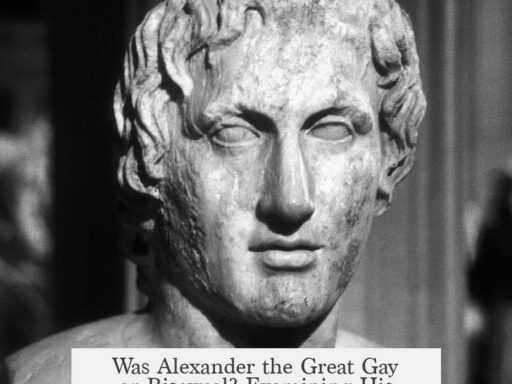Lincoln believed the Emancipation Proclamation would keep the Union together by re-energizing Northern commitment, undermining the Confederacy, deterring foreign intervention, and addressing complex political realities to maintain loyalty among border states. This executive order turned the war into a moral crusade, weakened the South, and fortified Union ranks with freed slaves, while balancing political constraints to prevent the Union’s collapse.

The Emancipation Proclamation renewed Northern dedication to the Civil War. By 1862, the Union war effort faced wavering support due to military losses and weariness. Lincoln aimed to revitalize enthusiasm among Northerners, especially abolitionists, by clearly linking the Union cause to ending slavery. This shift expanded the war’s goals beyond preserving the Union to transforming the nation’s social structure.
For many soldiers and civilians, the war lacked a moral focus initially. It centered mostly on legal and constitutional issues of secession. The proclamation infused the conflict with a clear moral imperative—abolition—that motivated troops and supporters alike. This moral framing reduced hesitation among Union soldiers, combating foot-dragging and boosting morale.

The proclamation empowered the Union military to free enslaved people in rebel territories legally. Previously, using freed slaves in the military risked accusations of confiscating property illegally. With emancipation official, formerly enslaved individuals could join the Union Army as soldiers or contribute as laborers and camp followers. This new manpower source gave the Union a vital advantage.
- Freed slaves fleeing the South bolstered Union forces.
- The Union gained a pool of motivated recruits and helpers.
- New safe zones emerged for escaped slaves within Union lines.
Militarily, the proclamation disrupted the Confederate war capacity. Slavery sustained the Southern economy and war effort by maintaining plantation productivity and freeing white men for combat. With slaves escaping and the proclamation legitimizing their freedom, the South faced agricultural chaos and resource strain. The Confederacy had to divert troops to control uprisings and guard against mass escapes, weakening its frontlines.

Internationally, Lincoln sought to prevent European intervention. England and France remained neutral partly because the war remained framed as a legal dispute, with some in Europe sympathetic to the South’s cotton exports. The Emancipation Proclamation transformed the Union cause into a fight against slavery, a position politically and morally unpalatable to European powers, especially Britain, which had abolished slavery decades earlier.
This moral high ground discouraged foreign governments from recognizing or aiding the Confederacy. Any support for the South would appear to be endorsing slavery, which was increasingly unacceptable in Europe. Thus, the proclamation provided a vital diplomatic victory by isolating the Confederacy internationally.

| Impact | Effect |
|---|---|
| Renewed Northern morale | Maintained war commitment |
| Legal use of freed slaves | Added manpower and support |
| Weakened Southern economy | Strained Confederate resources |
| International diplomacy | Prevented European support for South |
Politically, Lincoln carefully navigated the sensitive issue of slavery in the border states. The proclamation did not apply there, a concession designed to avoid alienating crucial slaveholding states loyal to the Union. This pragmatic decision prevented their secession and maintained the political cohesion needed for war success. Lincoln viewed emancipation as a powerful war measure focused on rebellious states, not a unilateral abolition across all U.S. territories.
The proclamation also reaffirmed Union authority, refusing to recognize Confederate legitimacy. It asserted the power of the federal government over rebel states, signaling no compromise on the Union’s permanence. Lincoln timed the proclamation after the battle of Antietam, whose outcome allowed him to declare the policy from a position of relative strength.

In sum, Lincoln’s belief in the Emancipation Proclamation stemmed from its multi-faceted role:
- Renewing Northern will to fight by linking the war to a moral cause.
- Expanding military resources via freed slaves joining Union forces.
- Disrupting the Confederacy’s social and economic foundations reliant on slavery.
- Deterring European powers from recognition or aid of the South.
- Maintaining political stability by excluding border states from immediate emancipation.
The proclamation was not simply a moral statement but a carefully crafted wartime strategy designed to hold the fragile Union together amid internal tensions and external threats.

- It shifted the war’s purpose toward abolition, energizing Northern supporters.
- It legally added freed slaves to Union ranks, boosting manpower.
- It undermined the Southern economy by attacking its slavery base.
- It prevented European intervention by giving the Union a moral cause.
- It preserved border states’ loyalty by excluding them from emancipation initially.
Why Did Lincoln Believe the Emancipation Proclamation Would Keep the Union Together?
At its core, Lincoln viewed the Emancipation Proclamation as a crucial strategy to preserve the Union during America’s most bitter conflict. It was more than just freeing slaves; it was about rallying Northern resolve, undercutting the Confederacy, deterring foreign allies, and giving the war a clear moral purpose. Let’s unpack how this bold proclamation became a linchpin in keeping the Union intact.

Ever wondered how a single document could play such a multifaceted role in a brutal war? Well, the Emancipation Proclamation was no ordinary decree. Lincoln wasn’t just waving a magic wand to end slavery overnight—he was carefully threading political, military, and humanitarian needles to keep the country from pulling apart.
Rallying the North: A War Without a Spark
At the beginning of the Civil War, many Northerners saw the fight largely as a legal struggle over states’ rights and preserving the Union. Slavery, while contentious, wasn’t the frontline issue for everyone. This created a “foot-dragging mentality” in some parts of the Union army. But Lincoln’s proclamation changed the whole picture.
By explicitly making abolition a war aim, Lincoln ignited abolitionist passion and gave the Union cause a clear moral focus. It turned the war from mere politics into a fight for “liberty,” energizing Northerners who felt previous policies were too mild on slavery. This renewed commitment was vital as the war’s toll and military setbacks risked dimming public support.
Lincoln recognized this need. He saw the proclamation as a way to “add new energy and commitment to the war effort.” It wasn’t just about arms and soldiers but about the spirit fueling those soldiers. Imagine being a Union soldier before and after the proclamation—it shifted the war’s meaning, from preserving a political union to ending a profound injustice.
Enlisting Freed Slaves: Turning Chains into Guns
One tactical benefit of the proclamation was how it legally allowed the Union to recruit freed slaves. Prior law saw slaves as “property,” and Union forces freeing or arming them could be accused of theft. After the proclamation, any enslaved person in rebel-held territory was “forever free,” allowing them to join and bolster Union ranks.
This was no small matter. Thousands seized the opportunity to escape bondage and fight for their freedom, swelling Union ranks with motivated soldiers and support workers. The military advantage was twofold: manpower and the symbolic power of former slaves actively undermining the Confederacy.
Think of it as gaining an army from within the enemy’s own ranks—slaves fleeing plantations, joining ranks, and making the South pay dearly for relying on enslaved labor. This not only disrupted Southern economic power but created a human wave the Confederacy could never match.
Disrupting the Confederate Economy and Morale
Slavery was the Southern economy’s engine, powering its agriculture and sustaining the war effort. Slaveholders could fight knowing their plantations continued producing wealth at home. Lincoln understood that by undermining slavery, he struck at the Confederacy’s very foundation.
The Emancipation Proclamation allowed thousands of slaves to escape, sapping Southern resources. The South had to divert soldiers and supplies to manage the chaos. Historian accounts suggest Lincoln expected “chaos” behind Confederate lines as a deliberate strategy to weaken the rebel states.
This chaos wasn’t just economic but psychological. Slaveholders watching their labor slipping away faced a booming morale crisis, while their armies were distracted by internal unrest. The Proclamation was a strategic blow causing ripple effects behind enemy lines.
Winning the Diplomatic Game: Keeping Europe Out
One angle often overlooked is the Proclamation’s international significance. England and France were teetering on the edge of recognizing the Confederacy, driven by their appetite for Southern cotton. But slavery was deeply unpopular in Europe by the 1860s.
Lincoln cleverly reframed the conflict as a moral crusade against slavery, giving the Union a “moral high ground.” If European nations openly supported the South, they risked being seen as champions of slavery—a stance growing increasingly indefensible back home.
This moral positioning created a diplomatic dilemma for European powers. Could they side with slavery or liberty? History tells us they chose the latter, keeping their armies and navies at bay. Thus, the Emancipation Proclamation became a diplomatic victory, isolating the Confederacy and making foreign intervention politically costly.
Balancing Political Realities: A Calculated Compromise
Here’s a neat fact: The proclamation didn’t free all slaves right away. Lincoln kept slavery intact in border states loyal to the Union. Why? Because he couldn’t risk those delicate alliances breaking. Their loyalty was vital to maintaining the Union’s strength.
So, the proclamation was a cautious, calculated move—a compromise between radical abolitionists and pragmatic politics. Lincoln never assumed Confederate states would comply willingly. Instead, the Proclamation declared that the Union didn’t recognize the rebel governments’ authority.
By doing so, Lincoln reasserted federal power and set a tone: The Union wasn’t just preserving territory—it was moving toward a transformed nation where slavery had no place.
The Perfect Timing: Riding the Wave of Antietam
The timing was clever. Lincoln waited for a Union military success before announcing the Proclamation. The Battle of Antietam, although tactically a draw, halted Robert E. Lee’s invasion of the North. This gave Lincoln the political momentum to release the Proclamation and make it seem like a victory-enhancing measure.
This timing was critical to give the document teeth. It wasn’t a desperate decree but a confident assertion backed by military strength. Without this backdrop, the message might have seemed empty or premature.
In Sum: Why Did Lincoln Believe the Emancipation Proclamation Would Keep the Union Together?
Lincoln believed the Emancipation Proclamation was essential to keep the Union together by:
- Renewing Northern commitment and energizing abolitionist support.
- Creating a new moral cause to justify and sustain the war effort.
- Leveraging freed slaves as soldiers and workers, bolstering military strength.
- Undermining the Confederacy’s economic and social stability.
- Securing diplomatic barriers against European intervention.
- Balancing political realities to keep border states loyal.
- Reasserting federal authority over rebellious states.
Without these factors, the Union risked faltering—wearied troops, fading public support, foreign backing of the enemy, and a still-powerful Southern economy. The proclamation was a masterstroke aimed at all these fronts simultaneously. It transformed the war from a fragile battle over unionism to a fight for emancipation and equality.
Lincoln’s genius was in seeing the Proclamation not as a single act of liberation but as a grand strategy tying together military necessity, political pragmatism, moral clarity, and international diplomacy. It was the linchpin that kept a fractured nation striving toward reunification.
Final Thoughts: Could the Union Have Survived Without the Emancipation Proclamation?
It’s tempting to ask: What if Lincoln hadn’t issued the proclamation? The Union might have struggled to maintain Northern morale. Europe might have lent the South weapons and recognition. The Confederacy could have kept its slave-powered economy intact longer.
The Emancipation Proclamation is a potent example of leadership blending ideals with pragmatism, proving that fights for justice can serve broader national interests. It kept the Union from cracking open like a fragile egg during wartime and shaped America’s destiny forever.
In short, Lincoln didn’t see the Emancipation Proclamation as merely freeing slaves. He saw it as the glue holding the Union together during its darkest hours—and history tells us he was right.



